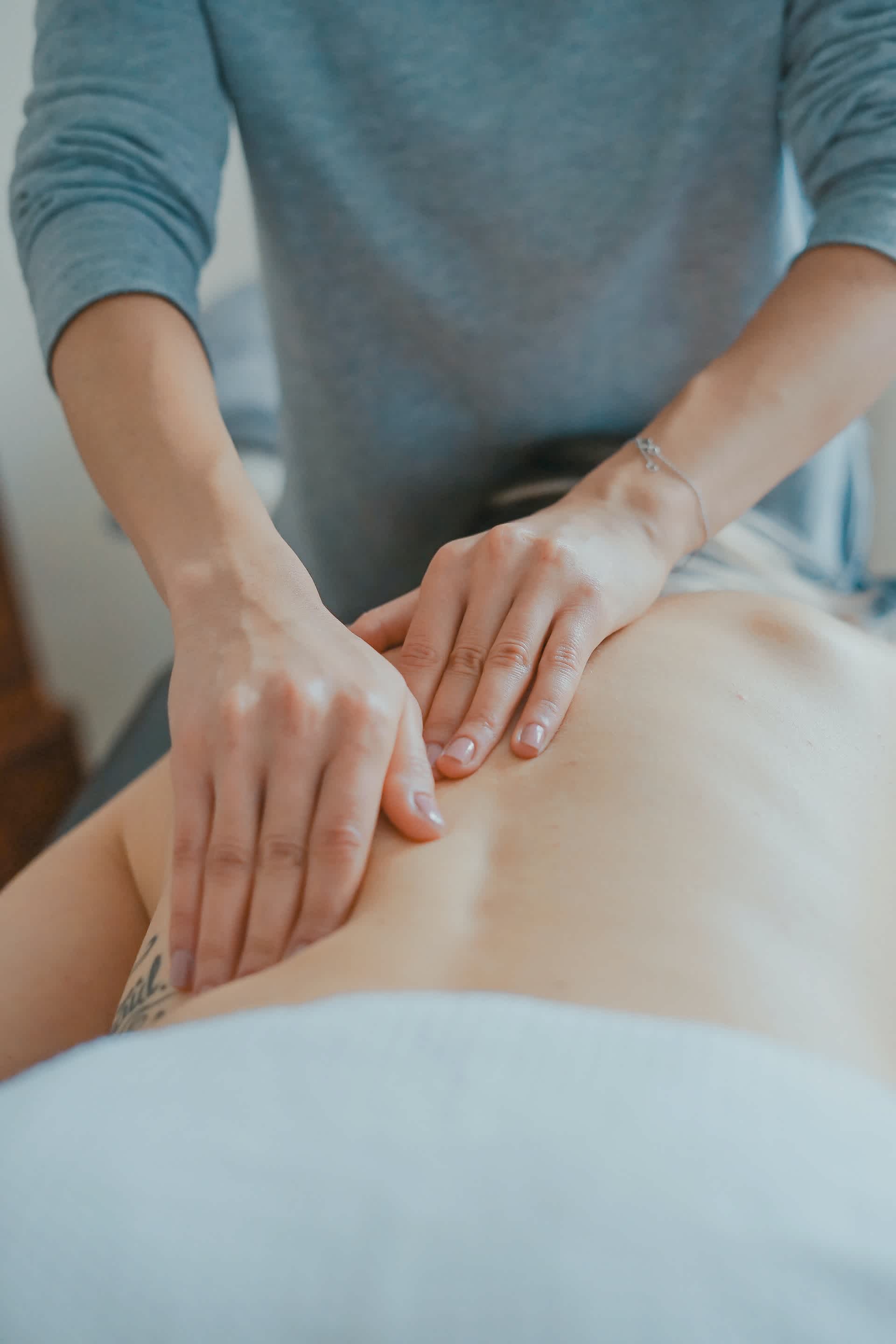If an individual is new to deep tissue massage, it can be concerning to find bruising, or a feeling of bruising, after treatment. But, is this normal? Should treatment be continued? In this article, we determine whether or not bruising after massage is normal, what causes it, and what can be done to reduce soreness.
So, is it normal to bruise after a deep tissue massage? It is normal for deep tissue massage to result in a feeling of bruising after treatment. Visible bruising is less common but not necessarily a cause for concern. Soreness after massage is due to unfamiliar manipulation of the muscles and will usually reduce after 48-72 hours - similar to DOMS after exercise.
Read on to learn more about bruising after deep tissue massage as well as what can be done to lessen the soreness and speed up recovery.
Can Deep Tissue Massage Cause Bruising?
Deep tissue massage can sometimes cause a feeling of bruised skin but visible bruising is less common. If visible bruising does occur, it's likely that the individual simply bruises easily or that the bruised area was vigorously worked.
Bruising after massage is rarely cause for concern and is not usually indicative of any underlying health concerns. However, health, diet, muscle tone and the use of aspirin before a treatment can impact this.
What Causes Bruising After Massage?
There are a number of other factors that can cause bruising, or a feeling of bruising, after massage. These include:
Poor Massage Technique or Inexperience
Deep tissue massage uses more advanced techniques than a traditional Swedish massage, for example. If the Therapist isn’t sufficiently trained, this can result in bruising.
Medication
Certain medications, such as blood thinners, can make people more prone to bruising after deep tissue massage. Individuals should make their Massage Therapists aware of such medications before treatment so that they’re able to modify their technique and reduce the risk of bruising.
Genetics
Some people are just genetically prone to bruising more than others. They “bruise like a peach”, and there’s not much they can do about it. As such, it’s likely that deep tissue massage will result in some level of bruising, especially after the first few treatments. However, as the body becomes accustomed to it, this bruising should lessen over time.
When Bruising After Massage Isn’t Normal
Minor bruising and soreness can be normal after a deep tissue massage. However, if it happens regularly, severely, or after a more gentle massage such as a Swedish massage, it’s a sign that something is wrong. In such cases, individuals should contact their GP for a quick check up before continuing with treatments.
Why Does Deep Tissue Massage Hurt So Much?
It can be helpful to think of deep tissue massage a little like exercise. If an individual is new to deep tissue massage, their muscles are being manipulated in ways that they aren’t used to. This often results in soreness akin to that after exercise (DOMS). This is the body’s response to inflammation and damage to the soft tissue as it heals.
Like with exercise, this pain after deep tissue massage can reduce over time. Individuals simply need to get used to their muscles being manipulated in this way.
A few ways to relieve this soreness include:
- Stay hydrated and avoid alcohol, sugary or caffeinated drinks
- Do some gentle stretches (like warming up or cooling down after exercise)
- Apply heat or cold for 15 minutes at a time, a few times per day
- Rest
Learn more about why deep tissue massage hurts so much in our dedicated blog. We go into more detail on the topic and explain the dos and don’ts of deep tissue massage to reduce the pain.
How Long Does it Take to Recover From a Deep Tissue Massage?
Soreness after a massage typically peaks around 24 hours after massage and usually lasts for around 48 hours, just like with exercise.. Individuals should, where possible, aim to rest for 24 hours after a deep tissue massage to help the muscles recover and reduce the risk of injury.
What Not to Do After Deep Tissue Massage
To help the recovery process along, here’s a few things to avoid after massage:
- Avoid alcohol and caffeine. Instead, increase your water intake to stay hydrated.
- Don’t do strenuous exercise for at least 24 hours
- Avoid large or heavy meals for a while as they can cause bloating and lethargy
- Avoid a hot bath or shower for a few hours after the treatment as this can cause the muscles to tense up
Final Thoughts
Deep tissue massage can cause both a feeling of bruising and visible bruising, although the latter is less common and depends on the individual in question. This feeling of bruising is natural and is usually nothing to worry about. It’s simply the result of the muscles being manipulated in ways they’re not used to - like with exercise. Soreness will peak around 24 hours after treatment and should be gone around 48-72 hours after treatment.
If you’re interested in learning more about massage, or would like to incorporate massage into your healthcare practice, take a look at our Sports Massage courses today. We offer Level 3 courses for beginners, as well as Level 4 courses for those wishing to advance. Courses are available at all major cities across the UK. Take a look today or get in touch for more information.
